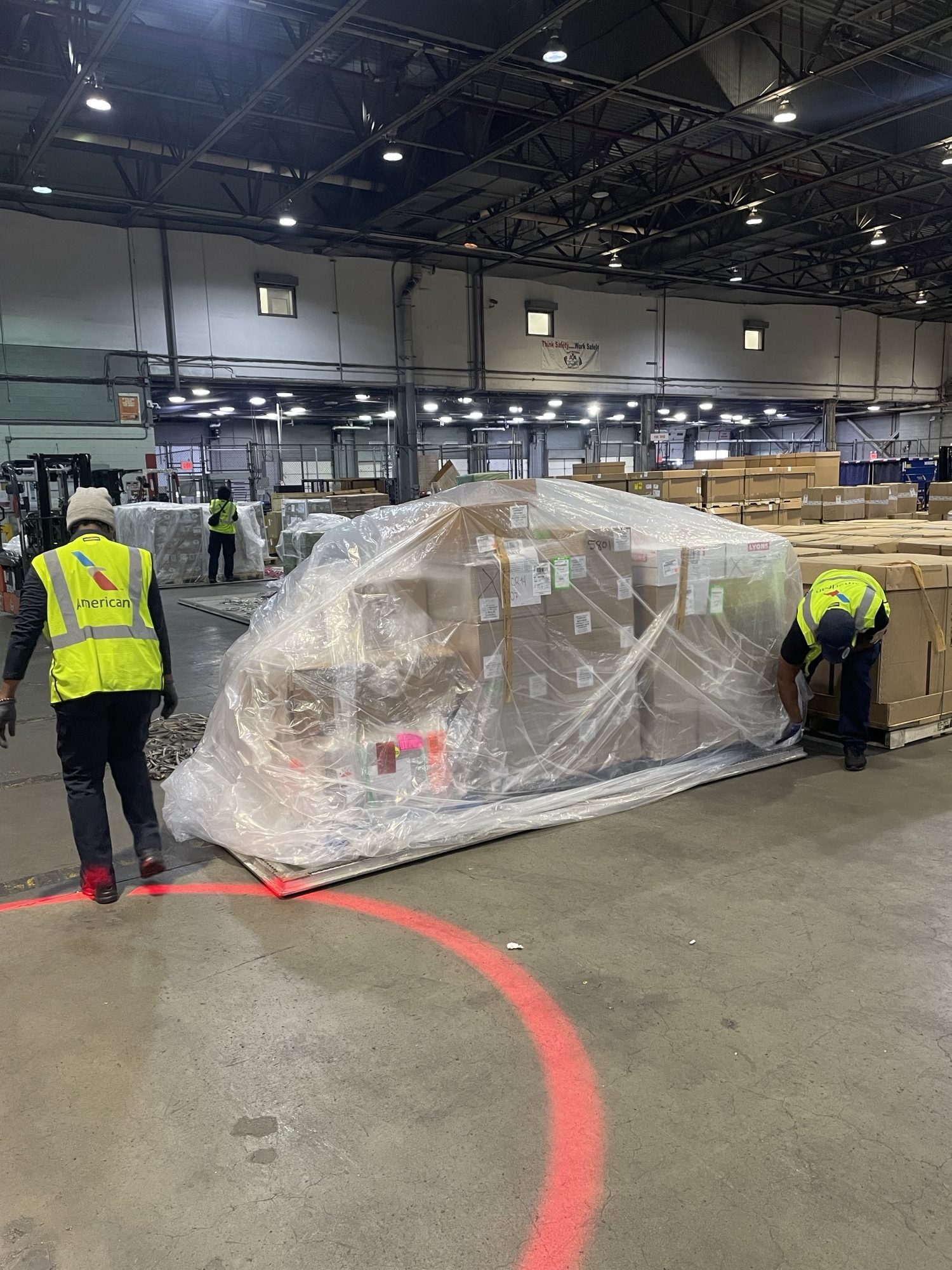The UK could need more than 112 million sq ft of new industrial and logistics floorspace, the area of more than 1,700 football pitches, over the next five years, according to the latest calculations from global property adviser Knight Frank based on current capacity utilisation rates.
The additional demand is linked to the UK’s growing population and our increasing dependence on distribution and manufacturing hubs, though the long-term trend in manufacturing toward high-value sectors, as well as increased automation in the manufacturing and distribution sectors, could ease pressure on the UK’s industrial and logistics stock.
Population growth and urbanisation:
Oxford economics forecasts the number of dwellings in the UK to rise by 958,640 over the next five years. London is expected to see the strongest growth (6.7% vs current stock), followed by the South East region. According to Knight Frank’s latest Future Gazing report, this growth will result in a high volume of additional delivery addresses that need to be serviced by logistics facilities.
Growing urban populations will also place greater pressure on industrial and logistics land in UK towns and cities. By 2033, 85.6% of the UK population is expected to be urban, compared to 84.5% today and 82.1% ten years ago. The UK’s ongoing shift toward city living will generate increased demand for urban industrial and logistics space in the coming years.
The changing nature of retail:
The way we work, shop and spend our leisure time are further increasing and changing the nature of UK industrial and logistics demand. Technology and digitalisation, as well as many consumers’ preference for online shopping and faster delivery times, will see online retail penetration rates increase from 26.6% to 29.1% by 2028. Growth in online retail sales and the associated demand for business-to-consumer deliveries is a major contributor to demand for distribution and fulfilment hubs. Knight Frank anticipates that an additional 37 million sq ft of logistics space is required just to service the growth of e-commerce over the next five years.
Physical and omnichannel retailers are also increasingly reliant on industrial and logistics properties to fulfil click-and-collect orders and returns. Physical retail, which requires approximately 1/3 of the warehouse space as e-commerce, is expected to drive 4.7 million sq ft of new requirements over the next five years as total retail sales volumes rise.
Manufacturing and services:
Manufacturing output, which has risen 11.5% in the past ten years and is projected to increase by an additional 4.3% by 2028, will drive demand for an additional 33.8 million sq ft of logistics space based on current capacity utilisation rates. A push to near-shoring and re-shoring of supply chains, partly in response to successive geopolitical and macroeconomic shocks over the past decade, also has the potential to spur manufacturing output. However, the shift toward high-value manufacturing sectors such as computer, electronic and optical products, will raise capacity utilisation rates, meaning additional requirements – calculated by reference to current utilisation rates – may not be as high.
The service sector, which accounts for 16% of occupied industrial floorspace, has become an increasingly prominent category of logistics occupier in urban industrial markets, with demand from catering, cleaning, vehicle maintenance and media production companies unable to be satisfied by the limited stock of well-located, cost-effective city-centre commercial premises. The service sector, which already dominates the UK economy and accounted for 81% of all UK commercial output in 2022, is forecast to see strong growth over the next five years. Output is expected to rise nationwide by 6.7% by 2028, requiring 36.5 million sq ft of new industrial and logistics space.
Current undersupply:
With the growth of the remaining segments of the industrial and logistics occupational market closely tied to the growth of the retail, service and manufacturing sectors, this portion of the market is likely to see similar rates of growth in the coming years. All of these factors combine to increase the projected amount of industrial and logistics floorspace required per dwelling in the UK, from 109 sq ft currently to 111 sq ft per dwelling by 2028.
However, surging demand for logistics space has coupled with constrained supply of new space over the past ten years, increasing rents and straining the availability of existing stock. Since 2013, occupied industrial floorspace has risen by 17%, precipitating a drop in vacancy rates from 9.2% to 5.2% over the same period. Market rents have risen 63% on average across the UK over that timeframe, while prime rents (units over 50,000 sq ft) have almost doubled (+93%).
Charles Binks, Head of Logistics & Industrial Agency at Knight Frank, commented: “It is clear that the projected growth of the UK’s population will necessitate the delivery of new industrial and logistics space, particularly when one considers the near record-low vacancy rates and level of availability of existing stock. However, assessing the forecast rate of population growth alone fails to account for the impact of our shifting lifestyles, consumption habits and economic activity on demand for industrial and logistics floorspace across the UK, which when taken together demonstrate the growing dependence of each household on well-located manufacturing, distribution and service hubs.”
Claire Williams, Head of UK and European Industrial Research at Knight Frank, added: “Where we live, how much we earn, how we shop, what we spend our money on and how we spend our leisure time are all driving changes in our requirements of the industrial and logistics sector. By exploring the changing nature of demand from the perspective of the household, our analysis aims to bring into focus the diverse nature of demand and better understand how requirements in terms of the uses, locations and facilities may change going forward.”











